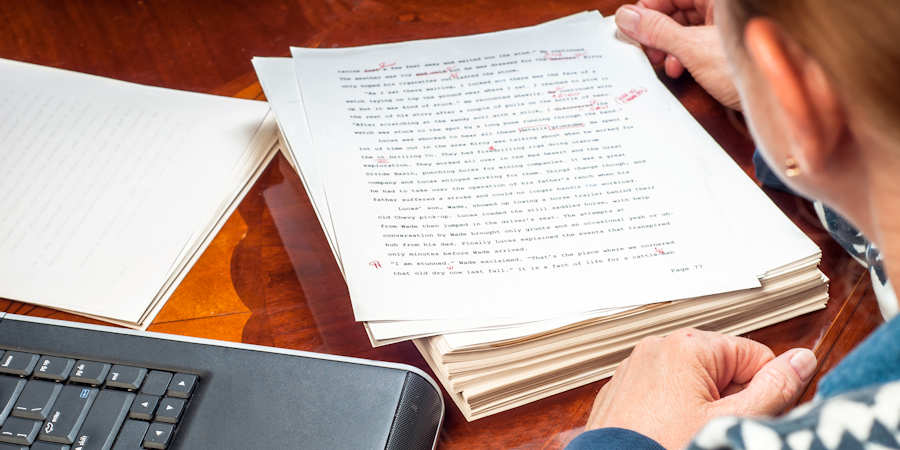
If you’re writing a book at some point it will need editing. If you successfully get a contract with a mainstream publisher they will have it edited by their in-house editors, if you’re self-publishing it’s down to you.
It can be tempting to skip this requirement, especially if you’ve been told you write well by readers of your blogs and articles. However, editing is not about checking your grammar, spelling and punctuation.
There are three aspects of editing:
1: Concept
A good editor will look at the overall concept of the book and will identify how well the book ‘hangs’ on that concept. They will assess how what you’ve written relates to that concept. They will make suggestions about what is missing and what needs pruning.
2: Content
On a more detailed level your editor will look at how each part of your book works. Sometimes they’ll suggest a subject needs further development or your opinion needs to be added or expanded (after all, it is your book and it’s you that makes it unique).
Often this will be to explain something in more detail or to add examples, case studies, or the reasoning behind something.
They may cut some of the material – for a variety of reasons, either because it doesn’t contribute to the subject under discussion or it’s repeated elsewhere in the book.
An editor will spot ‘waffle’ and sharpen up your prose so it gets your message across in a way that makes it easy to read and understand.
3: Copyediting
Also known as proofreading. This is the last thing that is done after all the other editing has been done, reviewed by you as the author and any additional work is done and you’re happy with the manuscript.
Checking for missing full stops, wayward apostrophes, typos and incorrect tenses is the final essential stage before your manuscript goes to print.
Typically, you’ll have a different person carrying out this stage to whoever has done the first two – as it needs a fresh pair of eyes that are ONLY looking for polishing the text, not changing it. It’s a different, but very valuable, skill.
What would happen if you didn’t get your book edited?
It simply wouldn’t be as good.
As the author you’re much too close to your ‘baby’ to be objective. A good editor can lift your book to a whole new level. Some writers worry that their work will be altered out of all recognition and will no longer be theirs but a good editor won’t take your voice away, they’ll simply enhance it.
The challenge for people who are publishing independently is that editing isn’t cheap – or perhaps I should say good editing isn’t cheap. It does front-load your investment, whereas getting a contract with a mainstream publisher means they carry the costs of cover design, editing and page layout, self-publishing means you have to fund all those yourself.
But bear in mind that you will probably get around 7½% of net on each copy sold by your publisher, while if you self-publish that can be well in excess of 50%.
At the end of the day it’s down to how well you market your book – and you’ll need to do that regardless of how it is published.
